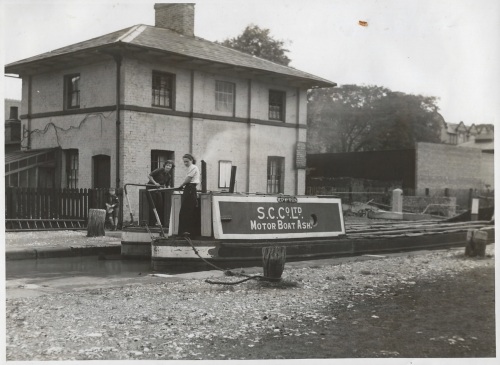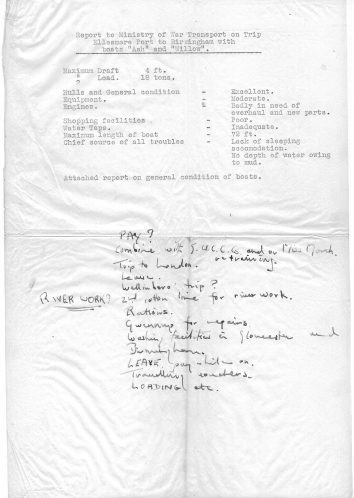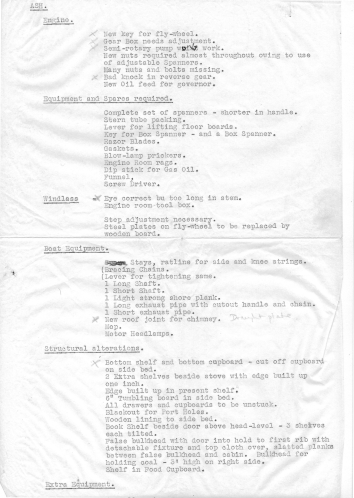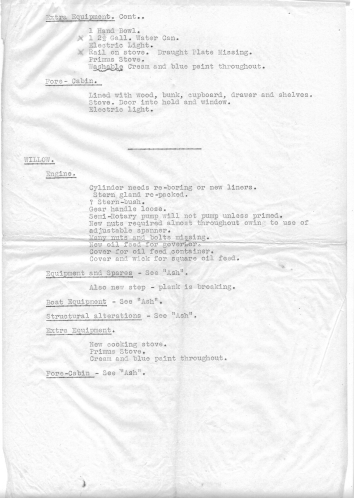Recently we have been in contact with the grandson of Molly Traill, one of the remarkable ladies who set up the scheme to get women trained up and working pairs of narrow boats during WW2 while the men were away. He has very kindly sent us some wonderful extracts from Molly’s scrapbook, regarding her involvement with Willow and Ash.
It seems that in the autumn of 1943, she and two other as yet un-named girls took the boats on a trial run from Ellesmere Port to Birmingham to test the idea, the route and the boats, and wrote a report detailing what was needed to bring the boats up to standard. The photo he sent was obviously taken at the same lock (Northgate Top, Chester) time as the other one we have via Mike Constable, but this one shows the boats from the stern end. We’re pleased to see that Willow doesn’t have the uglier “Z” shaped swan’s neck tiller that Ash (and Oak) do, as we’d always thought that really we should get one made for authenticity despite not thinking they looked as nice! Seems we won’t need to!
from the Molly Trail Archives
The report (click to enlarge)
from the Molly Trail Archives
Her reports show that the boats were in need of smartening up and that the engines were in need of repair. Her handwritten additions are also fascinating – she had great plans, but sadly, shortly after these photos were taken, and her report written, she came into conflict with the Ministry of War Transport and was let go. The boats went back to Gloucester, and continued to work for S&CCCo. Her grandson writes:
“Having devoted so much energy to setting up the scheme she eventually came into conflict with the Ministry and the canal companies over the expansion of the schemes. My mother remembers her campaigning over the working conditions for women on the boats and writing letters to the Times, which is not exactly the method organized labour would normally use. But the final letter from Phillip Noel Baker, the Parliamentary Secretary to the Ministry of War Transport, in which he ‘sadly’ has to dispense with her services, seems to imply that she had made herself unpopular with the canal companies. So she left the canals on a sour note, leaving behind the many schemes she had worked hard to set up. She was always a strong minded individualist and, in the end, she was effectively sacked for being a troublemaker.”
We want to find out more about this Northern scheme for female trainees. Perhaps a visit to the National Archives at Kew might reveal some more information. We would love to find out who those girls in the photo are!











I made mention of these women in my guest post to Greatest Generation Lessons a while back. What a remarkable contributions they made to the war effort.
Pingback: #idlewomen Midlands tour | Weaving Yarns
Pingback: Idle Women on Tour | M. B. Willow